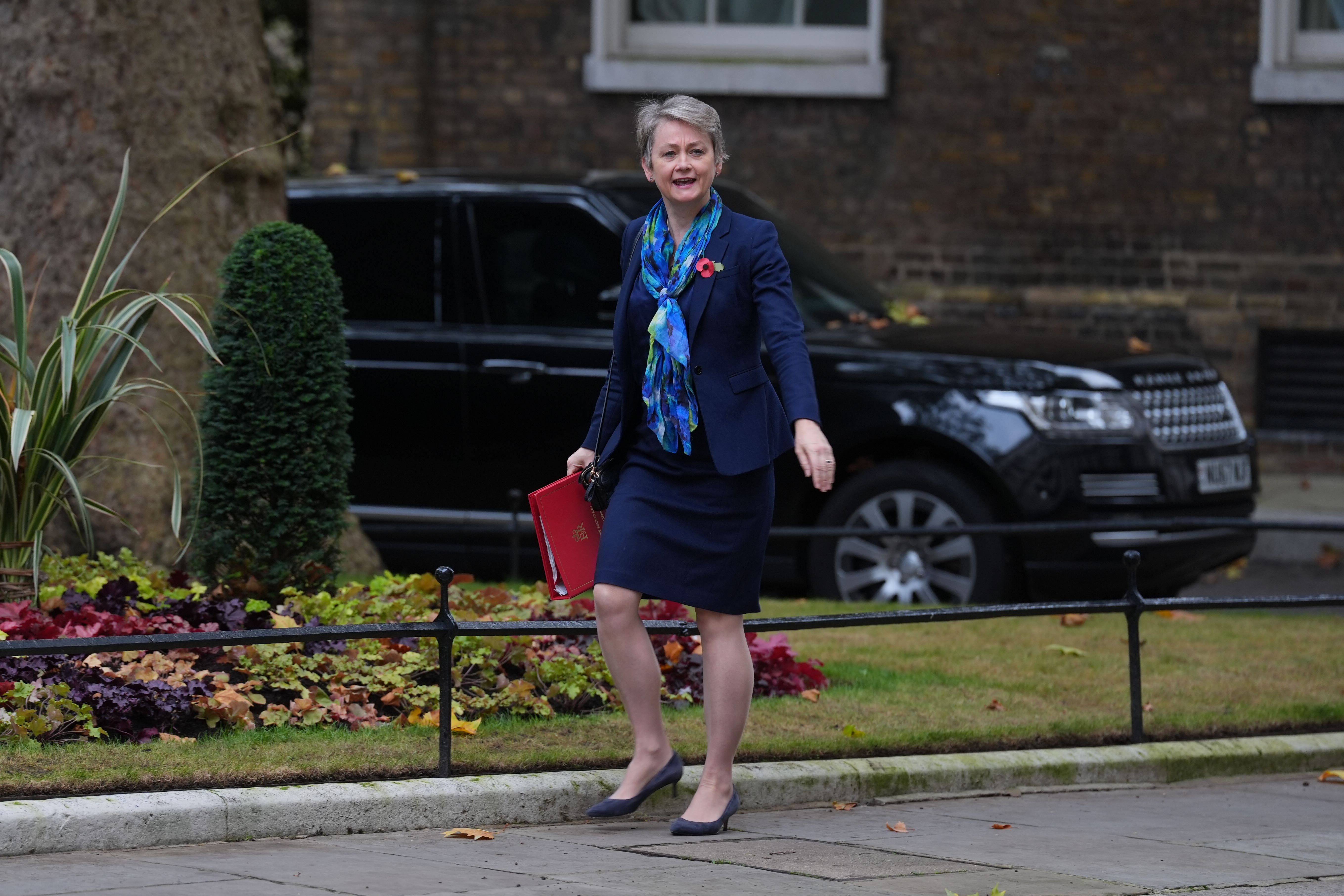Government will ‘try to make progress as rapidly as possible’ on small boats
Yvette Cooper said that criminal gangs were the target as the border security command is set to see its funding doubled.

The Home Secretary has said the government is “going to try and make progress as rapidly as possible” on small boat crossings, as the border security command is set to see its funding doubled.
Yvette Cooper did not commit to specific targets on bringing down Channel crossings when asked on Monday, and said that “we’ve actually got to go after the criminal gangs at the heart” of the issue.
The Prime Minister and Home Secretary will both speak at the Interpol General Assembly in Glasgow on Monday at the start of a week-long blitz on small boat crossings that will also see Sir Keir Starmer in Hungary for talks on tackling people smuggling.
The speech in Scotland will see the Prime Minister pledge a further £75 million for the border command, doubling the total funding to £150 million over the next two years.
The money will be used to fund high-tech surveillance equipment and 100 specialist investigators who will target criminals engaged in people smuggling.
Pressed on when a drop in the number of migrant crossings could be expected, Yvette Cooper told BBC Breakfast: “We obviously want to make progress as far and as fast as possible. The Prime Minister has said we need to see significant progress being made.
“We know, of course, it does take time to get the investigators in place, to make sure that we can get the new technology in place.”
She said that the Government is “going to try and make progress as rapidly as possible” and said that she would not “set out slogans and say everything was going to be solved in 12 months, and all on the basis of a slogan, because I don’t think people will take that seriously anymore.”
More than 5,000 people crossed the Channel in small boats in October, making it the busiest month of the year so far for crossings.
In addition, more than 430 people arrived over the first two days in November.
Ms Cooper said high numbers of crossings in October were “linked to the weather” but that “we’ve actually got to go after the criminal gangs at the heart of this, rather than it simply being dependent on the weather”.
The Prime Minister is expected to say in his speech that “the world needs to wake up to the severity” of the challenge of crossings.
“I was elected to deliver security for the British people. And strong borders are a part of that. But security doesn’t stop at our borders,” he will tell the event.
“There’s nothing progressive about turning a blind eye as men, women and children die in the Channel.”
The Government also intends to legislate to give border security forces “enhanced” powers, expected to involve expanding counter-terror tactics to deal with people smuggling.
The Border Security, Asylum and Immigration Bill, announced in the King’s Speech in July, will be the fourth piece of immigration legislation since 2022 as successive governments have attempted to tackle this issue.
The Prime Minister is also expected to say: “This is a vile trade that must be stamped out – wherever it thrives. So we’re taking our approach to counter-terrorism, which we know works, and applying it to the gangs, with our new Border Security Command.
“We’re ending the fragmentation between policing, Border Force and our intelligence agencies.”
Ms Cooper has said that the additional money announced today is new funding from the Budget.
She told BBC Breakfast: “It’s in addition to the £75 million we’d already talked about, which is only just starting to be invested now.”
Meanwhile, later this week the Prime Minister is expected to attend a summit of the European Political Community in Budapest where it is thought that migration and people smuggling will feature on the agenda.
Along with the investment in the Border Security Command, the Prime Minister will announce a £6 million increase in the UK’s support for Interpol as it tackles global organised crime.
The Government will also provide £24 million to tackle serious international crime affecting the UK, including drugs, firearms and fraud, particularly in the Western Balkans.
Bookmark popover
Removed from bookmarks